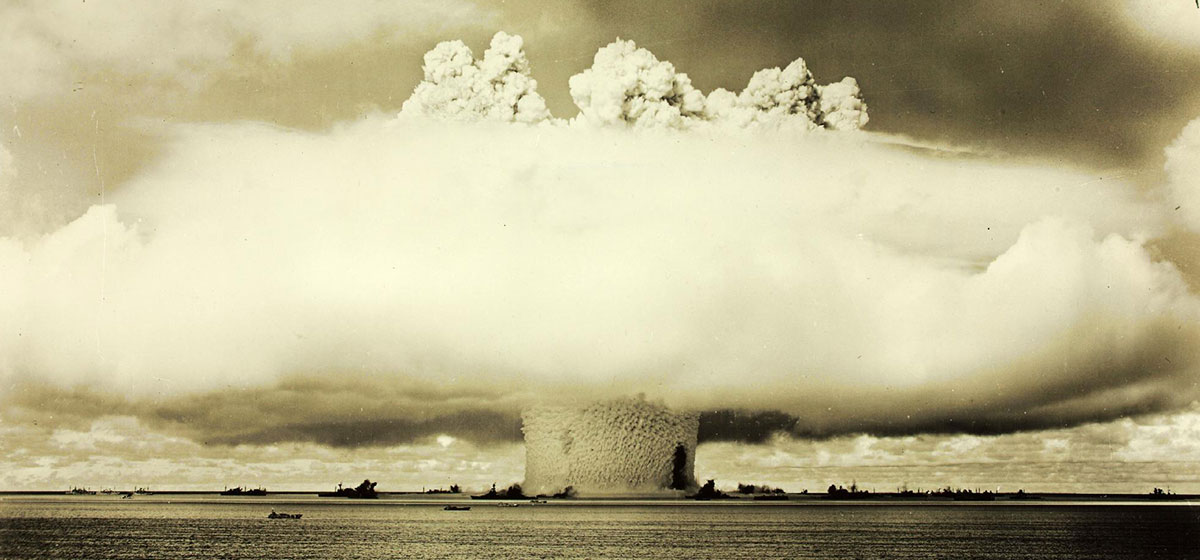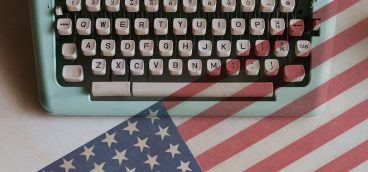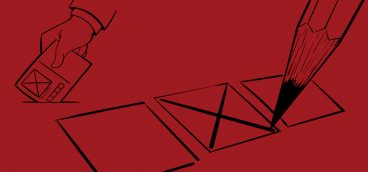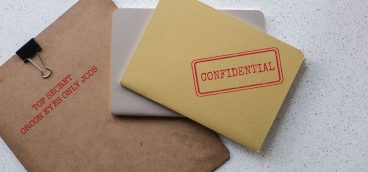The Plan That Would Have Changed the World

For readers who missed part 1 of this series of posts, I am summarizing a fictional novel written almost 40 years ago.
Gen. Willy Green sat staring at the file on his desk, still not quite believing what it contained.
The second document in the file—the one right after the red-outlined official form that told you how long you would go to prison if you so much as glanced at the contents—summarized what was being called Project Black Hole: a top secret plan to drop nuclear warheads on North Vietnam.
According to the summary document, the North Vietnamese would be given an ultimatum to surrender, and if they ignored it for 72 hours, a bomb would be dropped on Hanoi. Another ultimatum would be given and, if ignored, a second bomb would be dropped on Haiphong Harbor. And so on every 72 hours until the small country of North Vietnam ceased to exist.
The file made it clear that Project Black Hole would be implemented without Congressional oversight or knowledge, and with no input from the public. Black Hole would happen and Congress and the American people would simply be presented with a fait accompli.
Willy Green struggled with his conscience for a long time. He had spent his entire adult life in the military, and going outside the chain of command—especially regarding such a confidential matter—went strongly against the grain.
But eventually he donned his dress white gloves, smeared his fingerprints off the file cover, and carefully read through every document in the folder. Then he photocopied the documents and replaced the file exactly where he’d found it, on the floor of Gen. Garner’s office.
At 6:05 a.m. that Sunday morning, Gen. Green was ringing the bell at George Leader’s townhouse. Yawning and still in his bathrobe, George peered through the window in his door and was amazed to see Green standing there with a file in his hands.
“Willy!” George said. “What in the world are you doing here at this hour?”
“We need to talk, George,” Willy said.
In the kitchen, George began to fiddle with the Mr. Coffee machine but Willy slammed the file down on the table and said, “I’ll make the damn coffee, you read the damn file.”
When George had finished reading he and Willy stared at each other across the kitchen table. George’s coffee sat in the coffee mug, cold and untouched.
“What the hell are we going to do?” said Willy.
George Leader shook his head. “This can’t stand, Willy,” he said. “I don’t know how we’re going to stop it, but we’ve got to. But right now I need to put Jenny in the picture.”
George called Jenny in Cambridge, where she’d just returned from her morning jog. “Jenny,” he said, “you need to get down here to D.C. now, right this minute.”
“But, George! I have two classes today and a department meeting at…”
“Today!” George shouted and slammed the phone down. Then he turned to Willy and said, “Jenny will be here in four hours. In the meantime, you need to get some sleep, I need you to be alert. Take the guest bedroom.”
Four hours later, almost to the minute, Jenny was reading through the file, having been given a quick briefing by her husband and Willy.
“What do we do?” asked George. “Ideas?”
Willy and Jenny looked at each other.
“This isn’t an idea,” Jenny said, “but it’s a next step. We need to convene the Approvals Panel, put them in the picture, and talk it out.”
George looked at Willy, who said, “Not here. Somewhere private.”
Two days later, nine of the ten members of the Approvals Panel assembled at a remote farmhouse on the Eastern Shore of Maryland, a collection of buildings that would later become well-known as the Black Walnut Point Inn.
There they deliberated for four, long, 18-hour days. Members of the Panel came and went as necessary, attending to business and appearing at important events in order to avoid raising questions about their absence.
All nine panel members agreed that Project Black Hole had to be stopped, but there was, at least initially, little agreement on how to go about it. Gradually, however, opinion coalesced around the conviction that, as the Securities and Exchange Commission had always claimed, “sunshine is the best disinfectant.”
In other words, the threat of public exposure would surely cause President Johnson to drop Project Black Hole. But what was the best way to expose the project?
The panel eventually settled on two possible approaches. The first, which had five of the nine votes of the panel, called for George Leader to meet with President Johnson and inform him that, unless Johnson called off Project Black Hole, he, George, would call a press conference and tell the world what Johnson was up to.
The second approach, with four votes, called for the panel to send—anonymously—copies of the Project Black Hole file to The New York Times, The Washington Post, and The Wall Street Journal. The four panel members who supported this plan believed that the newspapers would compete with each other to break the story.
The problem was that the panel’s rules called for seven votes, not five or four. When it became clear that the panel was deadlocked, George had an idea. One member of the panel was missing and George suggested that they contact her and convince her to come to Maryland and join in the conversation.
Although no one anticipated it, the addition to the Approvals Panel of Grace Atkinson would profoundly change its a deliberations.






